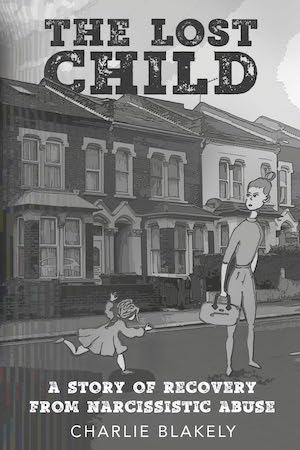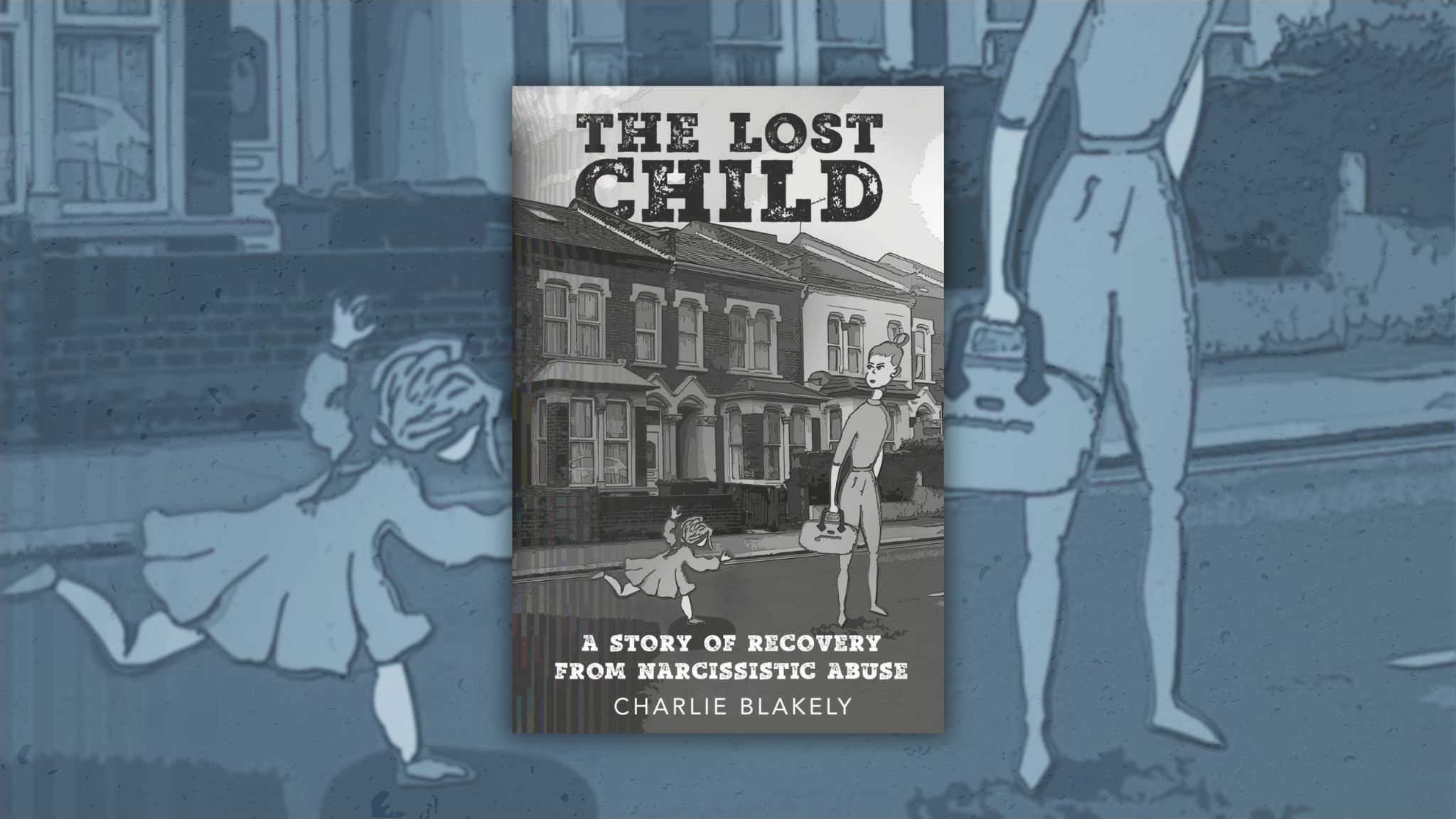The Lost Child by Charlie Blakely
“I’ve been in recovery from narcissistic abuse for the past 12 years and am now ready to share my story.”
Is it possible for a parent to view his or her child’s independence as a threat?
It’s one of the primary symptoms of Narcissistic Personality Disorder, found in 1 out of 200 people. Unfortunately for Charlie Blakely, author of The Lost Child, her mother was one of those people. And the abuse heaped on Charlie as a result forced her never to refer to her mother with any kind of affection —and vice versa — and basically defined her life on a long and difficult road to recovery.
It’s startling to hear some of Blakely’s stories. As a young child she comes down the steps seeking her mother’s comfort when her father is about to leave for good. “The Mother,” as Blakely refers to her throughout, shows no warmth and is more concerned about how she feels losing her husband — “What about what’s happening to me?” Running enthusiastically with open arms to greet her mother when coming home from school, Blakely is met with a stare and no emotion — “Glad you didn’t trip!”
“When loving a narcissist,” Blakely writes, “there is rarely any return on our emotional investment. And when there is, we usually discover the return to be hollow.”
But it is more than mere dismissal. Underneath it all, there seems to be contempt. Being nice was just so uncomfortable for her mother.
“My existence was irrelevant to her. That’s what it feels like to be The Lost Child.”
Blakely knows of what she speaks. While she has served as a mental health worker in the United Kingdom, she is talking to readers from her personal experience and supplemental research.
A Difficult Childhood and a Tough Choice
In the book, Blakely tells her story of growing up with three siblings, how her mother’s behavior affected them all, and the different roles they played in her mother’s head. She delves into her mother’s illness and how she and her siblings attempted to deal with it. In the various anecdotes, her mother’s behavior, words and reactions will make readers squirm. Every passage lets readers peek inside the troubled mind of The Mother — so cringeworthy as to make readers beg for the author to find solutions — and some sense of peace.
Back to a child’s independence, rather than the parent celebrating this growth, the more concerning it became. “The happier, the more independent and the more confident I grew, the more difficult she became … She was angry at my happiness.”
Blakely does a thorough, insightful, compassionate and convincing job in telling her story, from her earliest childhood memories through her adult life. While she lives in the depths of despair and feels the effects from her mother’s inner turmoil, she is able to lift herself above the noise and offer hope to anyone facing similar challenges. And she delivers more than just a compelling story, explaining the symptoms of Narcissistic Personality Disorder and offering tips, recovery tools and hands-on guidance.
Does one run? Does one stay and fight? The choices are not easy.
An Inspiration to Others
Blakely’s battle is relatable to anyone unsure of their self-worth, made to feel inferior, striving for an identity and fending off demons that threaten to wreak havoc with their future well-being and relationships. When Blakely succeeds (she found a passion for drama and the arts), the reaction is ridicule and dismissiveness. It’s no place for the weak of heart and spirit — yet even the strong will suffer.
It’s a life of abuse and bullying of the highest order. But Blakely’s story can serve as an inspiration to others.
“I hope this book reaches anyone who feels they were not loved as a child. Or anyone who feels they’ve been in a toxic relationship.”
“We are learning all the time.”
Charlie Blakely’s inspiration for The Lost Child was borne out of her frustration with the limitations of the UK National Health Service. As a mental health worker for the NHS, Charlie can see the challenges facing patients, from the inside.
The NHS avoids diagnosis of Narcissistic Personality Disorder. It is the elephant in the room, the disorder that nobody wants to mention for fear of being accused of being unsympathetic or judgemental.
Mental health support staff must often support the recovery of narcissistic patients, who are unwittingly trapped in a self-perpetuating negative abusive cycle. A never changing pattern. Never learning and never growing, because it is required that all around them deny the reality of their disorder, however obvious it may be. Charlie shares her experience of an effective trauma therapy that is not available on the NHS. She still supports others through her work in the NHS, but now does so from a place of fearless honesty.
Buy this Book!
Amazon



